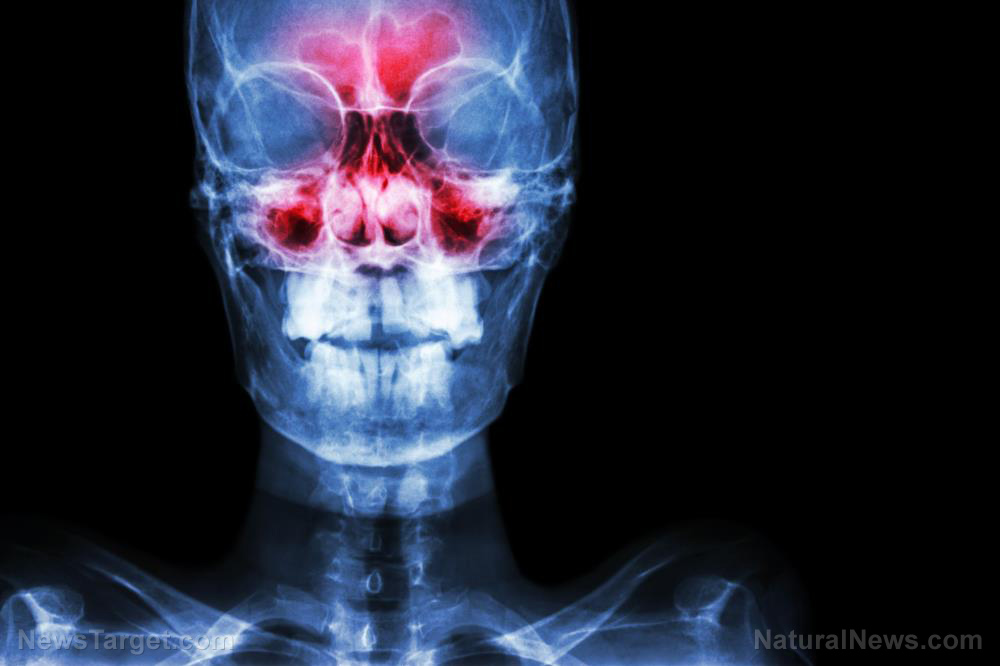Researchers look at the impact of medical foods in Alzheimer’s patients
12/24/2019 / By Evangelyn Rodriguez

The connection between diet and neurodegenerative diseases has long been the subject of scientific investigations. Today, although much remains to be understood, researchers and clinicians acknowledge the importance of diet in preventing, delaying, or improving the symptoms of Alzheimer’s. Alzheimer’s disease is the most prevalent cause of dementia around the world. This debilitating disease is still without a cure. Hence, scientists continue to search for viable treatments that can stop and reverse its progression.
In an article published in the journal Food Science and Human Wellness, researchers from China, Germany, Japan, the U.K., and the U.S. reviewed dietary interventions used today for the treatment of Alzheimer’s disease. They also reviewed clinical studies and highlighted the importance of developing more reliable assessment tools to confirm the effects of medical foods and their role in the treatment of Alzheimer’s.
How diets and medical foods help in the treatment of Alzheimer’s
Despite advancements in modern medicine, treatments that can improve the symptoms of Alzheimer’s or delay — let alone prevent — its progression have not yet been developed. Today, treatment relies heavily on conventional medications, such as acetylcholinesterase inhibitors (e.g., donepezil, galantamine, and rivastigmine) or NMDA receptor antagonists like memantine. According to studies, these medications have little to no effect on cognitive impairment and cause unwanted side effects like headaches, nausea, diarrhea, and vomiting.
Studies have also reported that some risk factors associated with dementia have something to do with diet. In addition, dietary components have been shown to influence brain activity and cognitive function. In recent years, more attention has been focused on exploring the potential of dietary interventions to improve Alzheimer’s symptoms. So far, researchers have explored the effects of the Mediterranean diet, ketogenic diets, and so-called medical foods on Alzheimer’s patients. (Related: Most cases of Alzheimer’s are preventable: New book explains how.)
The effects of the Mediterranean diet
The Mediterranean diet promotes the consumption of fruits, vegetables, legumes, whole grains, seeds, nuts, and olive oil, and encourages the avoidance of red meat and processed foods. Epidemiological studies and clinical trials suggest that this type of diet improves cognitive performance and lowers the risk of neurodegenerative diseases.
Researchers attribute the neuroprotective effects of the Mediterranean diet on phytonutrients like flavonols, carotenoids, and sulfur compounds, as well as omega fatty acids, which help fight inflammation. Inflammation in the brain activates immune cells called microglia, and this activation has been linked to the development of Alzheimer’s.
The effects of ketogenic diets
Another characteristic of Alzheimer’s is a decrease in glucose utilization, particularly in the brain. Normally, the body produces alternative energy sources called ketone bodies when it is deprived of glucose. Scientists have discovered that while glucose metabolism is impaired in the brains of people with Alzheimer’s, utilization of ketone bodies is unaffected. Hence, supplementing the brain with ketone bodies seems like a logical and promising treatment strategy.
Ketogenic diets involve the consumption of foods rich in fat, while carbohydrate intake is reduced or eliminated. This carbohydrate restriction robs the body of glucose and forces it to produce ketone bodies. Both animal and human studies have reported significant improvements in cognitive outcomes for subjects on ketogenic diets. Even older adults with age-related cognitive decline have been shown to benefit from this type of diet.
The effects of medical foods
Medical foods were developed for the purpose of helping patients, especially those with metabolic diseases, meet specific dietary requirements. In the U.S., these foods have been approved by the Food and Drug Administration (FDA) for clinical use. So far, researchers have identified three medical foods that can improve Alzheimer’s symptoms. These medical foods are Axona, Souvenaid, and CerefolinNAC.
Axona consists of caprylic triglycerides, which can be obtained from coconut or palm oils, albeit in small quantities. Caprylic triglycerides are meant to serve as precursors for ketone bodies. Souvenaid is a drink that’s composed of a variety of nutrients, including phosphatide precursors, which could improve synaptic function. Synaptic dysfunction is a major cause of cognitive impairment.
CerefolinNAC, meanwhile, is a special formulation containing N-acetyl-cysteine, the supplement form of the amino acid homocysteine used to address hyperhomocysteinemia. Hyperhomocysteinemia lowers cognitive performance and is said to cause brain atrophy.
Although these medical foods have shown positive results in preliminary studies, the researchers believe that large-scale clinical studies involving the use of valid, sensitive, and reliable assessment tools are necessary to establish the efficacy of medical foods in treating Alzheimer’s disease.
Sources include:
Tagged Under: aging, Alzheimer's disease, brain function, brain health, cognitive function, cognitive health, dementia, disease treatments, food cures, food is medicine, functional food, medical foods, natural cures, natural medicine, nutrients, prevention, research
RECENT NEWS & ARTICLES
COPYRIGHT © 2017 BRAIN NEWS

















